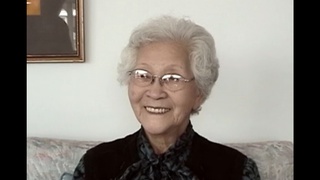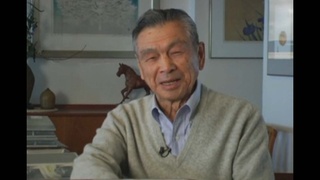Interviews
Facing discrimination in America (Japanese)
(Japanese) I don’t think people would ask me, ‘Can you do the job?’ if I was American, too. But they would ask me things like, ‘Do you know how to do welding?’ so frankly. They would ask that even inside the store. So I’d get them out, saying ‘Where do you think you are? What do you think we do here at the welding store? Please leave. Goodbye.’ I would say that to bad-mannered ones. So people who know me, since I’ve been doing the business since 1978, uh since 1980, they know that I would lose my temper if people said something rude, so they would tell people, don’t go there, they would say, don’t go there - or you need to keep your mouth shut if you really want the work done at his place. Those who know me know things like that.
Date: July 17, 2016
Location: California, US
Interviewer: Yoko Nishimura, Mitsue Watanabe
Contributed by: Watase Media Arts Center, Japanese American National Museum










